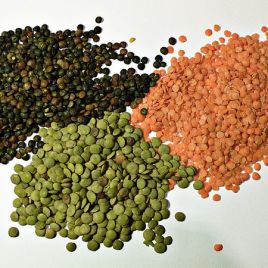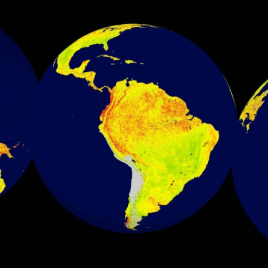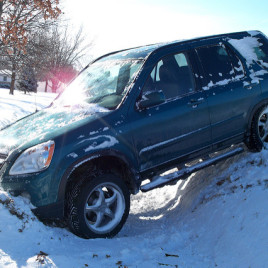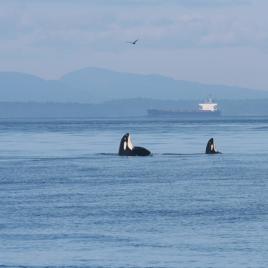Sexually transmitted infections (STIs) may have helped foster monogamy in some human societies, according to a new study. Researchers found that when a society is large the prevalence of STIs becomes endemic, reducing fertility rates and favouring the emergence of monogamists in society. However in smaller groups, with a maximum of 30 people, STI outbreaks […]
Tag: human behaviour

Celebrate the International Year of the Pulse every day and who know’s what you’ll lose
Eating just one serving of beans, peas, chickpeas, or lentils a day could help contribute to a modest weight loss, according to a meta-analysis of clinical trials. Researchers founding eating 130 grams (or ¾ of a cup) of the food group known as pulses each day led to just over half a pound of […]
Recovery is possible for global fisheries
The world’s declining fisheries could recover in less than a decade if management reforms are implemented in time, according to researchers. Researchers looked at 4,500 fisheries in the world, representing about 78 per cent of the reported global catch using state of the art bio-economic models. The researchers found that while the majority of fisheries […]
Recipe for a waste-free world
A series of comment pieces discuss the circular economy – where industrial outputs become inputs so that goods at the end of their life turn into resources for other uses. In the first article Walter Stahel, who coined the concept of the circular economy, argues it is time to shift to a “resource-miser” economy. He […]
The next miracle cure – exercise
Physical activity and specific exercises have been shown to be effective in alleviating the symptoms of many chronic health conditions such as knee osteoarthritis, low back pain, and chronic obstructive pulmonary disease (COPD). However a new review shows these exercises are being under-prescribed by physicians. The authors suggest this is due to a lack of […]

Mapping ecological sensitivity around the world
The areas of the world most sensitive to climate variation have been mapped by researchers. Using 14 years of satellite data researchers were able to develop the vegetation sensitivity index. The index is based on three variables that drive vegetation production – air temperature, water availability, and the degree of cloud cover. The researchers believe […]

Winter driving must become safer
An editorial from the Canadian Medical Association Journal calls for improving winter road maintenance and safety to decrease the number of deaths due to winter driving in Canada. The authors recommend: Improving road maintenance standards, and tailoring maintenance to local conditions. Government oversight of road service companies to ensure adherence to regulations. Legislation requiring […]
How infants account for dominance
Group size matters when determining who is dominant, at least according to human infants. The team believes this shows infants as young as six months of age are able to assess social dominance by looking at the numerical size of competing groups, an ancient evolutionary ability. Researchers found infants evaluate which group is dominant by […]
Losing money to lose weight
Paying employees to exercise doesn’t work, but taking money away might, according to a new study. Removing a small amount from a cash reward given upfront was more effective at promoting daily physical exercise than receiving a small reward for meeting physical activity goals. Participants in a 13-week physical activity program were given a goal […]
Women and the empathic yawn
It’s called yawn contagion, the need to yawn when you see someone else yawning. Increasingly it’s recognized as an empathy based response. Now, new research not only supports that notion but has found that women are more likely to contagiously yawn, than men. The authors of the paper observed people for five years during their […]
Shared semantic structure between human languages
Human languages share a common semantic structure regardless of the regional environment in which a language evolved, according a study of 81 languages. The authors believe concepts expressed in language may arise from universal properties of human cognition. Examining how words are related to other words in a language revealed a universal semantic network. For […]
The secret to impacting policy
Environmental researchers can increase their influence on policy by increasing their outreach, according to researchers. Consulting with greater numbers of stakeholders during the research process increases how legitimate researchers are seen, regardless of how knowledgeable they are perceived as. Lead author Stephen Posner of the University of Vermont said “our results suggest that decision-makers are […]

Shipping noises potentially harming Vancouver Island’s Killer Whales
New findings suggest noise from ships overlaps frequencies used for communication and foraging by orcas, potentially affecting the endangered Southern Resident orcas living in the waters around Vancouver Island, B.C. The researchers found container ships created the highest levels of background noise at frequencies below 20,000 Hz, and military vessels typically had some of the […]
If you’re a morning-person or night-owl the answer could lie in your genes
Being a morning-person or a night-owl may depend on your genes according to a study of nearly 90, 000 individuals. Participants were asked whether they preferred waking-up and going to bed early, or whether they preferred staying-up late and sleeping in. Their DNA was then analyzed. Researchers found specific genetic variations they think could be […]
Studying autism with genetically modified monkeys
Genetically modified monkeys showing autism-like behaviours could help the development of strategies to treat the symptoms of autism disorders, according to researchers. Currently one of the major challenges for researchers studying autism spectrum disorders is the lack of animals models that reproduce symptoms typically found in human patients. These monkeys, and their offspring, show behavioural […]
Use ’em or lose ’em – The case for teaching navigational skills
Schools should teach navigational and map reading skills to ensure future generations do not lose their innate ability to navigate in the world, so says Roger McKinlay, former president of the Royal Institute of Navigation in the United Kingdom. In this commentary, the author argues that turning to technology erodes our innate ability to orientate, […]